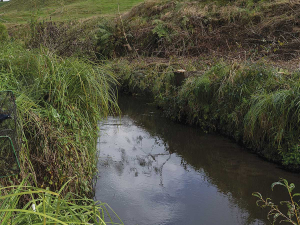Editorial: RMA reforms uproar
OPINION: The euphoria over the Government’s two new bills to replace the broken Resource Management Act is over.
 Farmers are anxious to know how the principle of Te Mana o te Wai will be applied under the new freshwater regulations.
Farmers are anxious to know how the principle of Te Mana o te Wai will be applied under the new freshwater regulations.
Federated Farmers is calling for transparency from Otago Regional Council amid a debate over proposed freshwater rules.
But the Otago Regional Council says it disagrees with claims from Feds that residents and landowners have been kept in the dark, saying there has been an open consultation process.
Luke Kane, Federated Farmers Otago president, says that since the release of draft regulations, significant changes have been made, but because of the “secretive nature” of the consultation process, the local community has been left in the dark.
“This is serious stuff and there needs to be some urgency,” he says. “The rules are scheduled to come into force in October and will have immediate legal effect.”
Kane says he would like to know how the principle of Te Mana o te Wai will be applied under the new regulations. Te Mana o te Wai, introduced by the previous Labour Government, encompasses six principles relating to the roles of tangata whenua and other New Zealanders in the management of freshwater.
“Our local councils need to be up front and let our community know how they plan to give effect to Te Mana o te Wai and how much it’s going to cost us,” Kane says.
“Federated Farmers are incredibly concerned about how the principle of Te Mana o te Wai may be applied in the Otago region and what it might mean for our community."
He says that council engagement has led to a view that no treated wastewater that has passed through a human body can be discharged back into local waterways.
“This would mean that wastewater, despite being treated to an incredibly high standard, would need to be discharged to land at significant cost to ratepayers.”
Additionally, he says, there are concerns for irrigated farmers that water that has been drawn from one waterway will not be able to be discharged into another.
“This is because of beliefs that each waterbody has a distinct mauri, or spirit, and mixing mauri would reduce the mana of the water,” he explains.
However, Otago Regional Council general manager planning and transport, Anita Dawe, says the consultation on Te Mana o te Wai took place in late 2020 and 2021, as part of the development of the council’s Regional Policy Statement.
“The process involved a number of meetings across Otago to share the draft policy statement and get feedback, as well as online feedback options,” Dawe told Dairy News.
She says that the National Policy Statement for Freshwater Management 2020 requires every regional council to include an objective that describes how the management of freshwater will give effect to Te Mana o te Wai.
She says that when the statement was notified, Te Mana o Te Wai was consulted on, with submissions and hearings, resulting in amendments.
Currently, Te Mana o te Wai is under appeal to the High Court for how it has been interpreted for Otago.
Otago Regional Council chairperson Gretchen Robertson told Dairy News that because Te Mana o te Wai will largely be implemented through the Land and Water Regional Plan, currently in development, it is difficult to tell how it will be applied.
“It is important that the draft plan has an aspirational goal and a practical lens. This includes for activities such as wastewater discharges,” Robertson says.
“Like all regions, investment in wastewater infrastructure upgrades is needed for systems that will not meet the needs of current and future communities,” she adds. “Despite the unfounded criticism, the plan is actually about creating appropriate consenting pathways, acknowledging that upgrades will happen over realistic timeframes and, on a scale, commensurate with their impacts.”
The Meat Industry Association of New Zealand (MIA) today announced that Chief Executive Officer Sirma Karapeeva has resigned from the role.
The winners of the 2026 Hawke’s Bay/Wairarapa Dairy Industry Awards were announced at the annual awards dinner held at Copthorne Solway Park in Masterton on Thursday evening.
Environment Southland is welcoming this week’s decision by the Environmental Protection Authority (EPA) to approve the release of Blaptea elguetai, a leaf‑feeding beetle that will help control the highly invasive Chilean flame creeper.
This March, the potato industry is proudly celebrating International Women’s Day on 8 March alongside the International Year of the Woman Farmer, recognising the vital role women play across every part of the sector — from paddocks and packhouses to research, leadership, and innovation.
Fruit trader Seeka posted a record profit and returns to shareholders in 2025.
Recent weather events in the Bay of Plenty, Gisborne/Tairawhiti, and Canterbury have been declared a medium-scale adverse event.
OPINION: Staying with politics, with less than nine months to go before the general elections, there’s confusion in the Labour…
OPINION: Winston Peters' tirade against the free trade deal stitched with India may not be all political posturing by the…